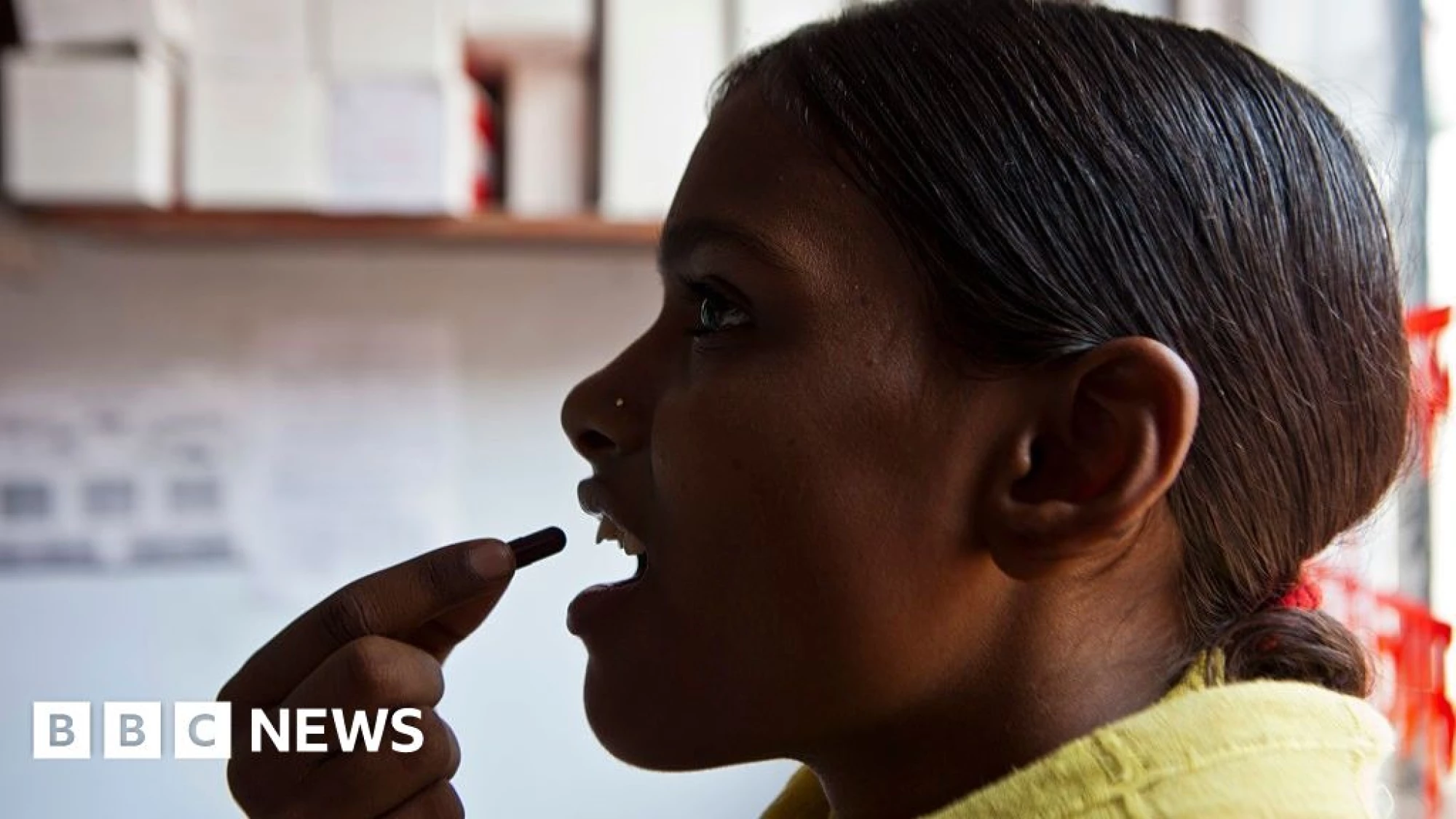Superbugs thrive as access to antibiotics fails in India

Antibiotics are overused by some and out of reach for others - fuelling resistance and leaving deadly gaps in care.
Watch LiveBritish Broadcasting CorporationHomeNewsSportBusinessInnovationCultureArtsTravelEarthAudioVideoLiveHomeNewsIsrael-Gaza WarWar in UkraineUS & CanadaUKUK PoliticsEnglandN. IrelandN. Ireland PoliticsScotlandScotland PoliticsWalesWales PoliticsAfricaAsiaChinaIndiaAustraliaEuropeLatin AmericaMiddle EastIn PicturesBBC InDepthBBC VerifySportBusinessExecutive LoungeTechnology of BusinessFuture of BusinessInnovationTechnologyScience & HealthArtificial IntelligenceAI v the MindCultureFilm & TVMusicArt & DesignStyleBooksEntertainment NewsArtsArts in MotionTravelDestinationsAfricaAntarcticaAsiaAustralia and PacificCaribbean & BermudaCentral AmericaEuropeMiddle EastNorth AmericaSouth AmericaWorld’s TableCulture & ExperiencesAdventuresThe SpeciaListEarthNatural WondersWeather & ScienceClimate SolutionsSustainable BusinessGreen LivingAudioPodcastsRadioAudio FAQsVideoLiveLive NewsLive SportHomeNewsSportBusinessInnovationCultureArtsTravelEarthAudioVideoLiveWeatherNewslettersWatch LiveDeadly superbugs thrive as access to antibiotics falters in India2 days agoShareSaveSoutik BiswasIndia correspondent•@soutikBBCShareSaveCorbis via Getty ImagesIndia is among the countries hardest hit by "antimicrobial resistance"It's a grim paradox, doctors say.
On the one hand, antibiotics are being overused until they no longer work, driving resistance and fuelling the rise of deadly superbugs. On the other hand, people are dying because they can't access these life-saving drugs.
A new study by the non-profit Global Antibiotic Research and Development Partnership (GARDP) looked at access to antibiotics for nearly 1.5 million cases of carbapenem-resistant Gram-negative (CRGN) infections across eight major low- and middle-income countries, including India, Brazil and South Africa. CRGN bacteria are superbugs resistant to last-line antibiotics - yet only 6.9% of patients received appropriate treatment in the countries studied.
India bore the lion's share of CRGN infections and treatment efforts, procuring 80% of the full courses of studied antibiotics but managing to treat only 7.8% of its estimated cases, the study in The Lancet Infectious Diseases journal reports. (A full drug course of antibiotics refers to the complete set of doses that a patient needs to take over a specific period to fully treat an infection.)
Common in water, food, the environment and the human gut, Gram-negative bacteria cause infections such as urinary tract infections (UTIs), pneumonia and food poisoning.
https://www.bbc.com/news/articles/ced262l83gjo
Rating: 5